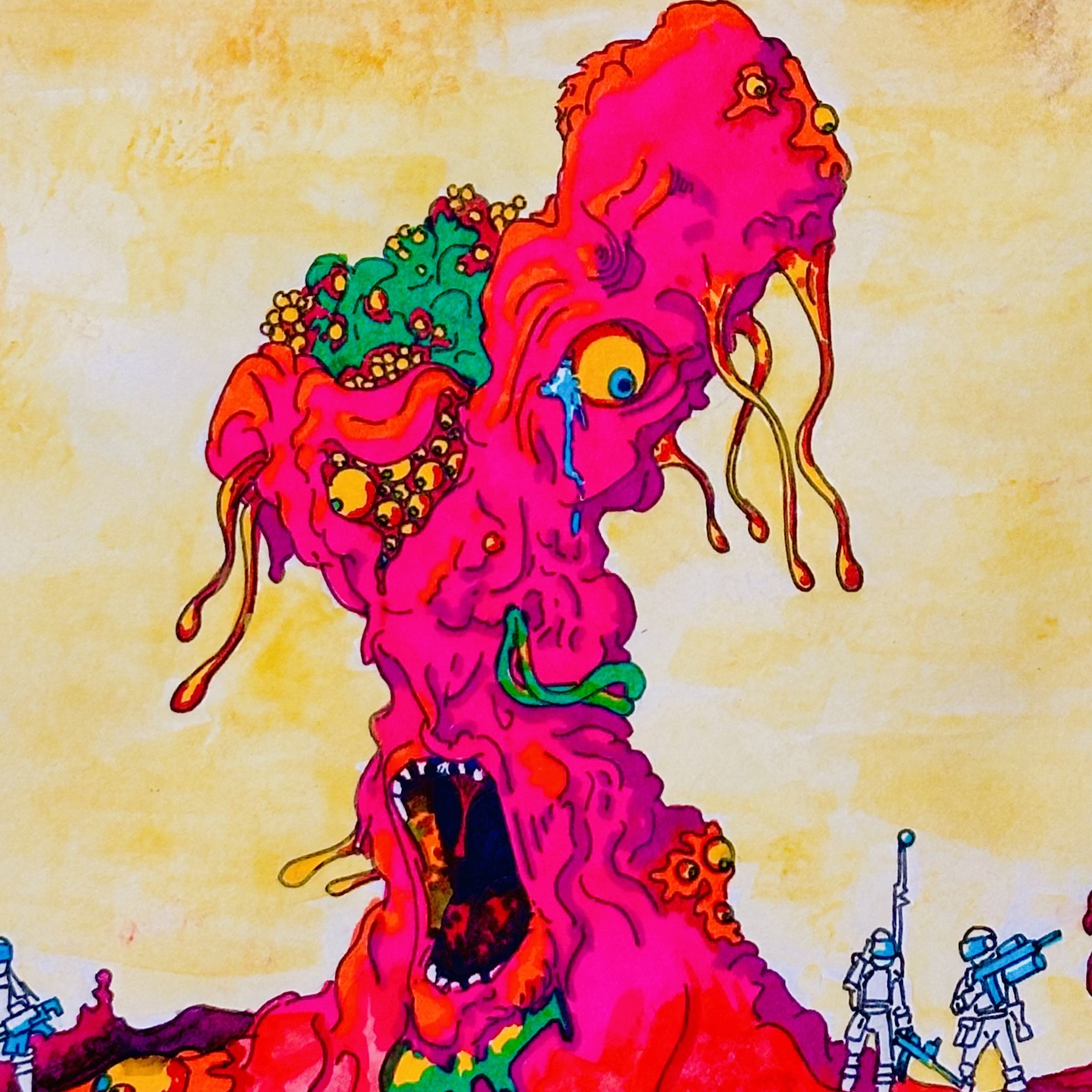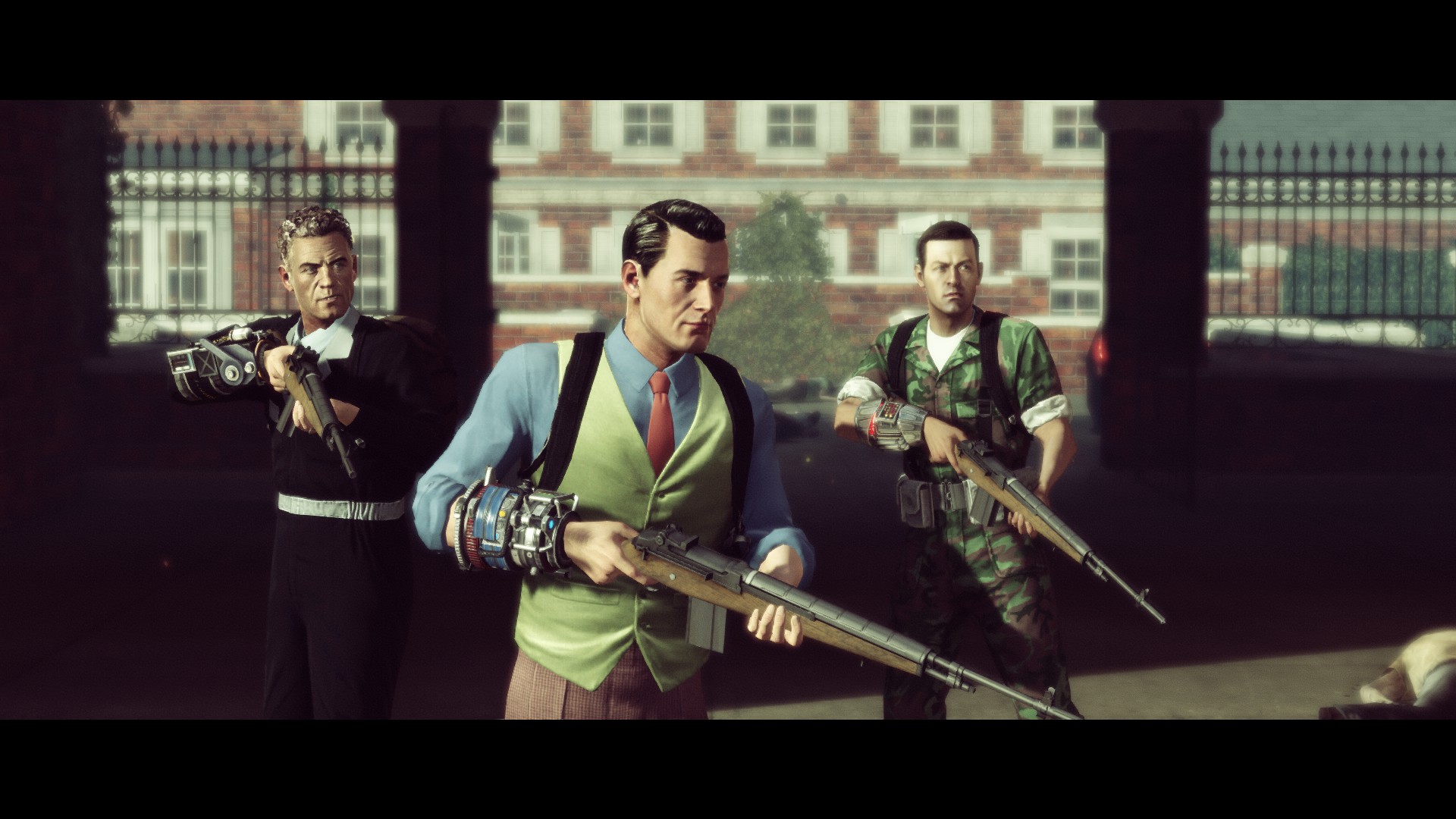

In your own question you are identifying something that isn’t a first responder. First responders arrive on scene. By being on scene the first responders were exposed to health hazards. Those hazards are what existing or proposed programs deal with.
I mod a worryingly growing list of communities. Ask away if you have any questions or issues with any of the communities.
I also run the hobby and nerd interest website scratch-that.org.


In your own question you are identifying something that isn’t a first responder. First responders arrive on scene. By being on scene the first responders were exposed to health hazards. Those hazards are what existing or proposed programs deal with.


Repeat from the other thread:
I beat The Bureau: XCOM Declassified.
It was alright. A third person shooter where you are theoretically giving tactical orders to two NPC followers. In reality, good or interesting tactics go out the window in favor of just spamming special abilities as much as possible in a chaotic mess of fights. The story was decent and gets interesting near the end, although for my money after the big reveal it feels like it drags out a bit longer than it needs to. For $3 I got my value.



I beat The Bureau: XCOM Declassified.
It was alright. A third person shooter where you are theoretically giving tactical orders to two NPC followers. In reality, good or interesting tactics go out the window in favor of just spamming special abilities as much as possible in a chaotic mess of fights. The story was decent and gets interesting near the end, although for my money after the big reveal it feels like it drags out a bit longer than it needs to. For $3 I got my value.



COD4 was the first Modern Warfare game.
World At War wasn’t numbered.


I’m not saying Clancy stuff is always completely grounded, especially the longer it goes on, but I’m trying to use the Clancy comparison to capture the essence of an idea. COD4 while fictional, and with moments that aren’t wholly realistic if you really hold them up to the most intense scrutiny has the overall texture of realism. MW2&3 and Black Ops games all exist as throwing bigger and more insane setpieces out with no regard to any realism.
It’s a the last COD with a real gutpunch moment that says anything about anything. The nuke going off it a moment of realizing you aren’t a special main character and you die like everyone else, and that maybe war isn’t just a big fun adventure. All the shock moments have been trying to top it are so dramatic that they don’t have the same effect that the nuke did.


While (classic, I’m not counting stuff ghostwritten under his brand) Clancy characters have hyper competence, it’s to be expected given that they are turbo ultra elite soldiers or spies. Their motivations and ability to act doesn’t reach the point of self parody.
For a COD4 example: Nikolai, the Russian that the player rescues early on in the game. He is a mole inside the Russian antagonist faction feeding information to the SAS. He got found out. He’s being kept at a house with a handful of regular soldiers watching him. When you rescue you him he is calm or at least puts up a calm front and thanks you. That’s a pretty believable guy who could have been a real person who is doing something realistic and dangerous.
In MW2 that character can materialize with apparently infinite types of military aviation hardware, and he is also a pilot able and willing to do insane maneuvers. And he is personal friends with Captain price rather than just being an SAS asset. And he is in touch with a friendly militia group in the middle of Europe.
There is a distinct jump from COD4 to MW2, where it goes from Tom Clancy to Michael Bay.
MW2 is still fun, but it exists in an entirely separate tonal reality than COD4.


I’m replaying COD4 and taking notes at the moment for a review I’ve wanted to do for years, coincidentally.
Looking at just COD4 without being influenced by knowledge of the sequels, it’s got a decent story and if you look at the edges you can find contemplations of cycles of violence, and while not to the point of being anti-war it does emphasize the waste of it.
The characters are Tom Clancy levels of larger than life, which is significantly more restrained than what came later. Individually the story beats and scenarios have at least a texture of realism, often loosely based in something real and then strung together in a story that isn’t convoluted.
I could see it being a good movie with the right handling. It probably wouldn’t be.


The first one has slightly different foreign languages dubbed. It is also listed as a Sony manufactured box set, I really don’t know the rights history there, but that’s what the product page says.
The second one is listed as a Disney made box. It contains one disc with everything on it.
The third product looks the same as the second but containing three discs instead of one.


I suspect the headline was written to be intentionally confusing to be more eye grabbing.
From the article:
It’s unclear how much the 62 per cent drop in sales [in Canada] translates to in dollars, but the company’s total sales were down three per cent for the quarter.


Total sales are down 3% for the quarter, so some very rough head math would say at absolute most Canada is 6% of sales. Assuming the entire 3% overall drop was caused by Canada.


The headline is a little unclear and just for clarity, the sales are down 62% in Canada, rather than a 62% drop in overall sales. The Canadian boycott is still likely having an effect, however in the interest of not just skimming a headline that effect seems smaller than first impression.
It’s unclear how much the 62 per cent drop in sales translates to in dollars, but the company’s total sales were down three per cent for the quarter.


The headline is a little unclear and just for clarity, the sales are down 62% in Canada, rather than a 62% drop in overall sales. The Canadian boycott is still likely having an effect, however in the interest of not just skimming a headline that effect seems smaller than first impression.
It’s unclear how much the 62 per cent drop in sales translates to in dollars, but the company’s total sales were down three per cent for the quarter.


Questions like this are why I don’t like “drone” as a catchall description. Drones are everything from single use first person view suicide devices, to off the shelf quad copters for recon, to essentially unmanned aircraft, to essentially just more controllable long range missiles.
Ukraine has adopted Vykhors as the “standard” for their first person view suicide drones. These are often seen in footage with PG warheads attached and modified so the drone can fly straight at an armored target.

Ukraine has also been using Bayraktar TB2, which are essentially unmanned aircraft which fire air to ground munitions and then return to base.

The Russians use for example the Orlan-10 for recon. They are recovered after using a parachute to help land in one piece.

Russia purchased from Iran, and now makes its own version of the Shahed 136, a long range drone (about 1500 mile range) that is essentially just a highly controllable missile. The payload is built into the drone.

These are just a few examples and not an exhaustive list. The examples should illustrate the wide range of sizes, costs, and uses of drones though.
Yes, but today in particular they turned in a piranha tank with this John Oliver centric protest (?)
I have no idea either. Obviously a protest but they fail to actually explain themselves in the post descriptions which is not helpful .
All I’ve got is the tablet and the phone for work. Gosh either I’m an executive or not all workplaces and job types are alike.


complete lack of understanding of personal responsibility


I bought GamePass just for Outer Worlds because everyone pointing out that’s it’s from the team that made “New Vegas”.
I did a whole review of this game, and one of the first things I tackled was that it is absolutely not from the New Vegas team in terms of writing or design leadership. I completely blame the marketing for setting wrong expectations by creating that connection.
It is a good game, but going in wrongly thinking (due to misleading marketing) that it is New Vegas In Space is going to leave you frustrated.
The special provisions that exist or have been proposed are for first responders because they breathed in dust and were exposed to various health hazards during the response.
What above and beyond taking care of do people who weren’t exposed to any of that in the backend need?